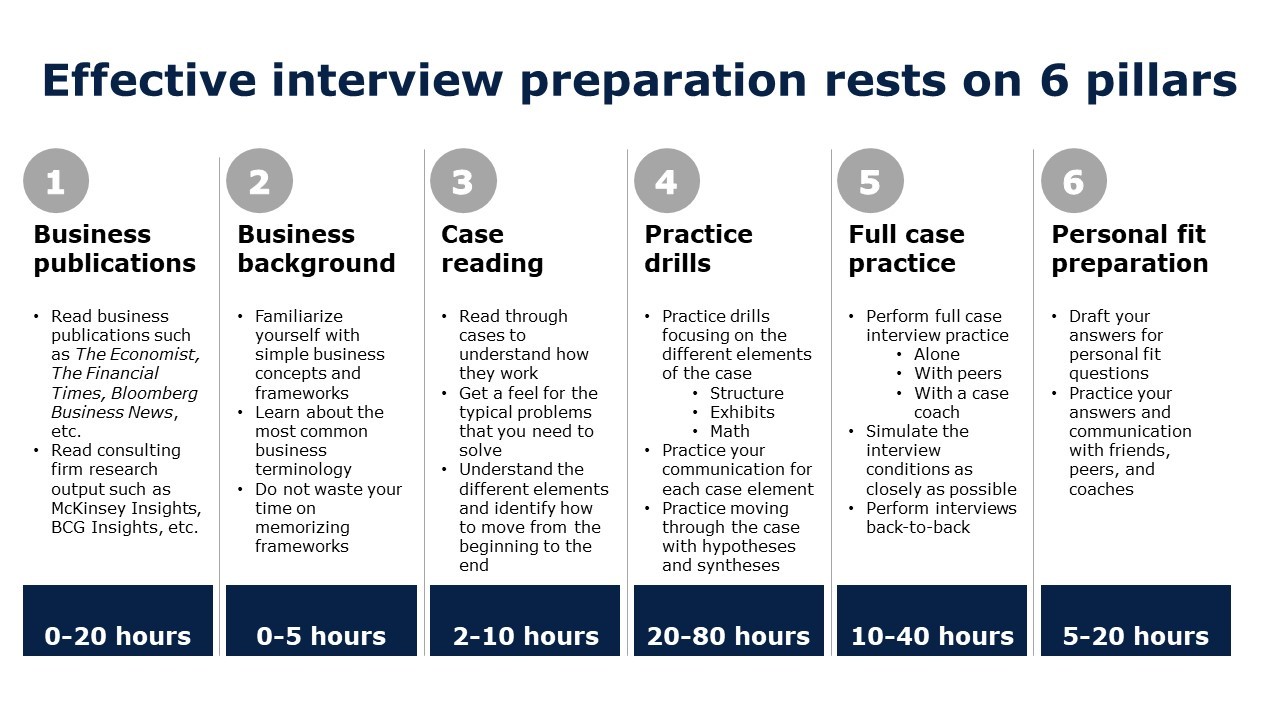Hey everyone!
This is my first post here.
I will commence my Masters in Management at ESCP Business School (Grande Ecole) this fall. It's a two-year course and I could take a gap year/semester after the first year to do internships.
As of now, I'm hell-bent on getting into Consulting. My long-term goal is PE. However, I'm having some starting trouble preparing for the cases.
Since I did Engineering during my undergrad, I haven't cased in my life. And trying to find structured info on the internet has been quite disappointing. I want guidance as to how I should prepare as an absolute beginner.
I planned on starting with Case in Point or Case Interview Secrets to understand the basics and then pick one of the case books and stick to it.
By the time I reach my B-school (commencing in September this year), I intend to find a case buddy to do cases with. I also heard my B-school provides free access to the CaseCoach platform.
My questions are:
1. HOW CAN I PRODUCTIVELY USE MY TIME PREPARING FOR CASES? Is my plan good enough?
2. Which case books that are beginner-friendly should I get? (please specify the year if you can)
3. What is your opinion on the Crafting Cases platform?
4. Should I do the cases from the Case Book alone before finding a case partner?
All suggestions are highly appreciated. Thank you so much!


